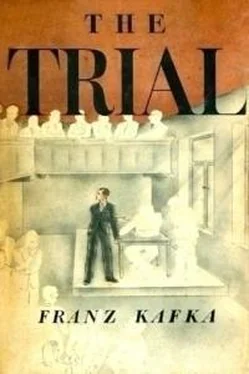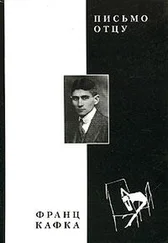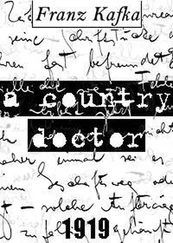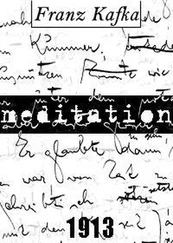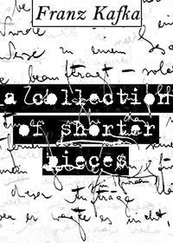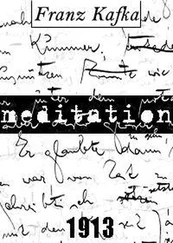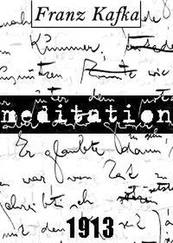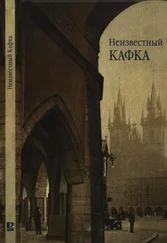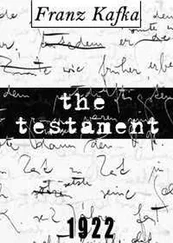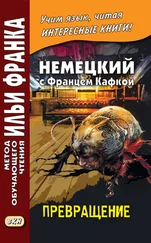Франц Кафка - The Trial
Здесь есть возможность читать онлайн «Франц Кафка - The Trial» — ознакомительный отрывок электронной книги совершенно бесплатно, а после прочтения отрывка купить полную версию. В некоторых случаях можно слушать аудио, скачать через торрент в формате fb2 и присутствует краткое содержание. Год выпуска: 2014, Издательство: epubBooks Classics, Жанр: Классическая проза, на английском языке. Описание произведения, (предисловие) а так же отзывы посетителей доступны на портале библиотеки ЛибКат.
- Название:The Trial
- Автор:
- Издательство:epubBooks Classics
- Жанр:
- Год:2014
- ISBN:нет данных
- Рейтинг книги:3 / 5. Голосов: 1
-
Избранное:Добавить в избранное
- Отзывы:
-
Ваша оценка:
- 60
- 1
- 2
- 3
- 4
- 5
The Trial: краткое содержание, описание и аннотация
Предлагаем к чтению аннотацию, описание, краткое содержание или предисловие (зависит от того, что написал сам автор книги «The Trial»). Если вы не нашли необходимую информацию о книге — напишите в комментариях, мы постараемся отыскать её.
The Trial — читать онлайн ознакомительный отрывок
Ниже представлен текст книги, разбитый по страницам. Система сохранения места последней прочитанной страницы, позволяет с удобством читать онлайн бесплатно книгу «The Trial», без необходимости каждый раз заново искать на чём Вы остановились. Поставьте закладку, и сможете в любой момент перейти на страницу, на которой закончили чтение.
Интервал:
Закладка:
Without giving any answer to this offer, K. stood still for some time. Perhaps, if he opened the door of the next room or even the front door, the two of them would not dare to stand in his way, perhaps that would be the simplest way to settle the whole thing, by bringing it to a head. But maybe they would grab him, and if he were thrown down on the ground he would lose all the advantage he, in a certain respect, had over them. So he decided on the more certain solution, the way things would go in the natural course of events, and went back in his room without another word either from him or from the policemen.
He threw himself down on his bed, and from the dressing table he took the nice apple that he had put there the previous evening for his breakfast. Now it was all the breakfast he had and anyway, as he confirmed as soon as he took his first, big bite of it, it was far better than a breakfast he could have had through the good will of the policemen from the dirty café. He felt well and confident, he had failed to go into work at the bank this morning but that could easily be excused because of the relatively high position he held there. Should he really send in his explanation? He wondered about it. If nobody believed him, and in this case that would be understandable, he could bring Mrs. Grubach in as a witness, or even the old pair from across the street, who probably even now were on their way over to the window opposite. It puzzled K., at least it puzzled him looking at it from the policemen's point of view, that they had made him go into the room and left him alone there, where he had ten different ways of killing himself. At the same time, though, he asked himself, this time looking at it from his own point of view, what reason he could have to do so. Because those two were sitting there in the next room and had taken his breakfast, perhaps? It would have been so pointless to kill himself that, even if he had wanted to, the pointlessness would have made him unable. Maybe, if the policemen had not been so obviously limited in their mental abilities, it could have been supposed that they had come to the same conclusion and saw no danger in leaving him alone because of it. They could watch now, if they wanted, and see how he went over to the cupboard in the wall where he kept a bottle of good schnapps, how he first emptied a glass of it in place of his breakfast and how he then took a second glassful in order to give himself courage, the last one just as a precaution for the unlikely chance it would be needed.
Then he was so startled by a shout to him from the other room that he struck his teeth against the glass. "The supervisor wants to see you!" a voice said. It was only the shout that startled him, this curt, abrupt, military shout, that he would not have expected from the policeman called Franz. In itself, he found the order very welcome. "At last!" he called back, locked the cupboard and, without delay, hurried into the next room. The two policemen were standing there and chased him back into his bedroom as if that were a matter of course. "What d'you think you're doing?" they cried. "Think you're going to see the supervisor dressed in just your shirt, do you? He'd see to it you got a right thumping, and us and all!" "Let go of me for God's sake!" called K., who had already been pushed back as far as his wardrobe, "if you accost me when I'm still in bed you can't expect to find me in my evening dress." "That won't help you," said the policemen, who always became very quiet, almost sad, when K. began to shout, and in that way confused him or, to some extent, brought him to his senses. "Ridiculous formalities!" he grumbled, as he lifted his coat from the chair and kept it in both his hands for a little while, as if holding it out for the policemen's inspection. They shook their heads. "It's got to be a black coat," they said. At that, K. threw the coat to the floor and said – without knowing even himself what he meant by it – "Well it's not going to be the main trial, after all." The policemen laughed, but continued to insist, "It's got to be a black coat." "Well that's alright by me if it makes things go any faster," said K. He opened the wardrobe himself, spent a long time searching through all the clothes, and chose his best black suit which had a short jacket that had greatly surprised those who knew him, then he also pulled out a fresh shirt and began, carefully, to get dressed. He secretly told himself that he had succeeded in speeding things up by letting the policemen forget to make him have a bath. He watched them to see if they might remember after all, but of course it never occurred to them, although Willem did not forget to send Franz up to the supervisor with the message saying that K. was getting dressed.
Читать дальшеИнтервал:
Закладка:
Похожие книги на «The Trial»
Представляем Вашему вниманию похожие книги на «The Trial» списком для выбора. Мы отобрали схожую по названию и смыслу литературу в надежде предоставить читателям больше вариантов отыскать новые, интересные, ещё непрочитанные произведения.
Обсуждение, отзывы о книге «The Trial» и просто собственные мнения читателей. Оставьте ваши комментарии, напишите, что Вы думаете о произведении, его смысле или главных героях. Укажите что конкретно понравилось, а что нет, и почему Вы так считаете.
